May 10, 2019
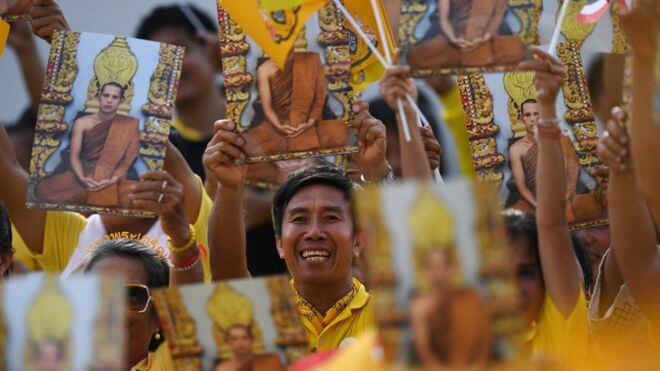
Thousands gathered outside the palace to celebrate the coronation of Thailand’s King Maha Vajiralongkorn. Source: BBC

This week, President Donald Trump threatened Cuba with the “highest-level sanctions” following Venezuela’s Juan Guaido’s attempted uprising against Nicolas Maduro and his government. Cuba has been a known supporter of Maduro, along with Russia. Trump stated, “with the right moves, Cuba could do very well. We could open it up but we’re going to end up closing it up if they don’t get out of Venezuela”.
The Cuban government decided to cancel its 12th annual Conga Against Homophobia March this week, a move concerning LGBT rights activists. The cancellation of the march comes after Cuba’s decision to backtrack on their plans to approve same-sex marriage under a new constitution. Norge Espinosa Mendoza, LGBT activist, stated, “Not allowing [the parade] is a signal that we are not welcome”.
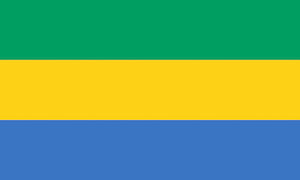
Ten members of Gabon’s opposition signed a request last week for a neurologist to examine Gabon’s President Ali Bongo to determine if he was fit to continue ruling. The request was quickly dismissed by a trial court, stating that “only a majority of either the government or the parliament’s two chambers can request the Constitutional Court to call for a vacancy of power”. Despite his prolonged absence from the country since his stroke in November, his doctors still expect him to make a full recovery.

Nicaragua’s national independent newspaper La Prensa suffered a large-scale cyber attack this week, the latest in Nicaragua’s worsening press freedoms. The attack started Friday night when 11,000 bots per second tried to enter the site, causing the newspaper’s website to crash for 24 hours. After many attempts, the site was back up and running by Sunday, although slowly. While it is still unclear who called for the attack to be carried out, the editor of La Prensa publishing group Jaime Chamorro Cardenal described the incident as “a direct attack on press freedom and freedom of expression.”

North Korea has launched an unidentified projectile, its first confirmed launch of its kind since 2017, as reported by South Korea’s military. While Pyongyang said that the launches were purely “routine and self-defensive”, weapons experts who analyzed the launch say that it could be a test launch for an “advanced short-range ballistic missile”.
In response to “a number of short-range projectiles” fired into the Sea of Japan on Saturday, US President Donald Trump tweeted that the Kim Jong-un, “knows that I am with him & does not want to break his promise to me. Deal with happen!”.

Two Reuters reporters were released from prison in Myanmar on Tuesday after serving over 500 days of their seven year sentence. The reporters, Wa Lone and Kyaw Soe Oo, were arrested for breaking the “Official Secrets Act” for their investigation into the killing of Rohingya people by the government in 2017. The men were released along with 6,520 other prisoners given presidential amnesty in relation to celebration of the traditional New Year. Their arrest angered human rights advocates and diplomats worldwide, raising questions about Myanmar’s progress toward democracy.
A spokesman for Myanmar’s army confirmed last week that at least six people were detained and killed in the Rakhine state. The detainees were being held for potential ties to the rebel Arakan Army made up of ethnic Rakhine Buddhists. The spokesman said that group was shot after they tried to grab the soldiers’ weapons.

This week, the United States announced strict sanctions on Iran, specifically sanctioning Iran’s steel, aluminum, copper, and iron, all of which are crucial parts of Iran’s economy. This decision comes after Tehran announced that they would quit certain parts of the 2015 nuclear agreement with global powers. President Donald Trump even threatened further sanctions, stating, “because of our actions, the Iranian regime is struggling to fund its campaign of violent terror as its economy heads into an unprecedented depression”.

The death of a CNRP member’s son while in custody has led to calls from the group for an investigation into the man’s death. Tith Rorn died on April 18th supposdely from a fall in the prison’s bathroom. However, the number of bruises covering his body suggest that he may have been beaten to death by prison guards. The Cambodian National Rescue Party, who has faced much repression from the current government fears that this attack could have been politically motivated and has called on human rights groups to investigate.

Towards the end of April, Pope Francis donated $500,000 to aid migrants attempting to reach the US border, stuck in Mexico. The Pope has condemned the Trump Administration’s goal of building a wall in the past, and has stated that aid to migrants has significantly decreased. The donation will come from the Catholic Church’s Peter’s Pence fund, collected from churches around the world.
It has been ten months since Mexico’s President Andres Manuel Lopez Obrador was elected, and analysts are examining his current impact on the country. The murder rate continues to rise in Mexico, despite his efforts to reduce crime and violence. He has provided temporary humanitarian work visas to Central American migrants passing through the country, and supports the protection of human rights of each individual.

This week, Zimbabwe’s high court led by Judge Edith Mushore declared that Nelson Chamisa of the Movement for Democratic Change Party is not a legitimate leader, as the party had not properly conducted its own internal processes in 2016 when appointing Chamisa as vice-president. The party must now begin the process of finding new leadership within the month. Nkululeko Sibanda, spokesperson for Chamisa, stated that the decision was, “politically motivated”. He stated, “we see this as the latest and probably the last attempt to derail the Chamisa presidency that Zanu-PF are so scared of”.
This week, a public forum was held in Washington, D.C. to discuss the food insecurity crisis in Zimbabwe. 44% of poor households in Zimbabwe are spending more of their income on food. Jason Taylor, the USAID chief office of humanitarian assistance and resilience in Zimbabwe, shared his growing concerns that urbanites were spending significantly more on food in Zimbabwe.
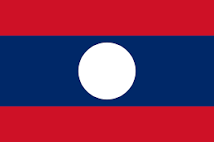
Villagers who were displaced by the construction of the Don Sahong Dam over three years ago are still waiting for government assistance. While they were promised help from the government in exchange for losing their homes, many still don’t have jobs, and the only assistance has come in the form of livestock. An official said that villagers were given piglets and chickens to raise, but they were not familiar with raising these type of animals. Prior to dam construction, most people caught large amounts of fish in the river, though this is no longer an option since construction began. Environmental groups have also urged the government to stop building on the Mekong River, as the construction negatively affects a number of endangered species in the area.
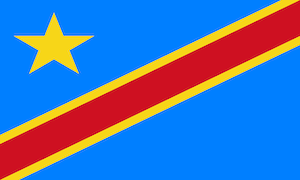
On May 4, a demonstration led by taxi drivers in Butembo temporarily halted medical response activities, after demonstrators put wooden barricades on the main road arteritis and attacked city-wide hand washing stations. Cases of Ebola have risen to 43, and health responders are finding the disease difficult to maintain as violence continues.
The DRC is continuing to administer its experimental vaccine, having given it to over 110,000 people at risk of contracting the disease. Health care workers are considering new strategies for administering the vaccine in main outbreak regions that are home to almost two dozen rebel groups.

On Wednesday, Colombia called out Venezuela for “repeated provocations” after a reported 30 military personnel crossed into Colombia’s borders. The foreign ministry said in a statement that the Venezuelan unit had crossed 200 meters into their territory, leaving shortly after 20 minutes when Colombian soldiers arrived at the scene. The statement said that incidents like this have been more common since Colombia endorsed Juan Guaido as Venezuela’s interim president, calling current president Maduro “a dictator”. Since Venezuela’s economic crisis began in 2017, Colombia has taken the brunt of its effects with more than 2.7 million people fleeing the country – most of them moving into Colombia.
In northwest Colombia, more than 1600 people have been displaced in a turf war between illegal armed groups over the past two weeks. On Tuesday, the United Nations urged Colombia to take immediate action in controlling the groups and providing aid to those who have been displaced. On April 28th, a group of leaders from indigenous groups, who make up a majority of the displaced region, also requested immediate humanitarian aid including clean drinking water, education for the children, and cooking/sanitation facilities.

Last week, opposition leader Juan Guaido called on the army to overthrow Nicolas Maduro, resulting in Guaido having to go into hiding and injured anti-government protesters clashing with security forces. Maduro considered this an “attempted coup”, and has claimed himself successful. This week, Venezuela’s Supreme Court called for the arrest of seven National Assembly deputies, one of which being Edgar Zambrano, for treason. The National Constituent Assembly (ANC), consisting of Maduro supporters, lifted parliamentary immunity of the opposition lawmakers.
The consequences of the coup have heightened this week, as Edgar Zambrano, vice-president of the National Assembly and deputy of Juan Guaido, was detained in Caracas by the country’s intelligence services. This is the first arrest of a senior opposition figure since the “attempted coup” against Maduro last week. Democratic Action party leader, Carlos Prosperi, was meeting with Zambrano in Caracas, stating that Zambrano’s car was surrounded, and he believes the vice-president was taken to El Helicoide, a prison in the city center. Many countries have called for Zambrano’s quick release. The EU condemned the arrest of Edgar Zambrano, calling the arrest, “another flagrant violation” of Venezuela’s constitution, also describing it as, “a politically motivated action aimed at silencing the National Assembly”.
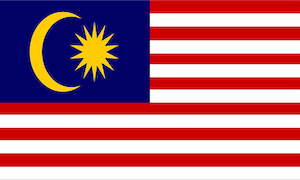
Human Rights Watch and Amnesty International released a report Wednesday calling attention to Malaysia’s slow progress on reforms. When Prime Minister Mahathir Mohamad’s coalition won the election one year ago, he made promises of human rights reform and weeding out corruption. However, his first year in office has seen little of these promises come to fruition. Human Rights Watch said that while there were plans for reform, many of his plans have been delayed or withdrawn by opposition groups worried about how the changes could affect rights of certain ethnic groups. Amnesty International concluded by saying that in order for the reforms to be successful, they must be laid out within a clear and accessible roadmap.
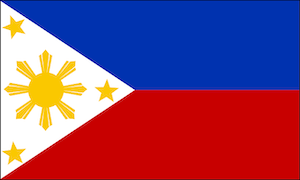
This week, the President of the Philippines, Rodrigo Duterte, was accused of being linked to a drug syndicate. The accuser was a man online under the pseudonym “Bikoy”, after posting five videos in which he states that he has evidence that Duterte and those close to him are involved in narcotics trade. “Bikoy” later revealed his identity as Peter Joemel Advincula after saying that he has received a number of death threats and fears for his life. Advincula cites his legitimacy in these controversial claims in having been a part of the syndicate in the past.
President Duterte’s administration has strongly denied any connection he and those close to him have to a drug syndicate. The allegations are especially ironic as Duterte has launched a brutal and unforgiving war on drugs during his presidency.

Thailand celebrated the coronation of King Maha Vajiralongkorn this weekend with a huge nationwide celebration. While the king has been ruling since his father passed away in 2016, this weekend recognized the end of the official mourning period and celebration of a new ruler. In Thai culture, the king has no political power but is seen as a representation of “divine on earth”. For many, witnessing his coronation is a once in a lifetime event, seeing as the last one took place almost 70 years ago. Hundreds of thousands of people gathered in Bangkok over the weekend to witness King Vajiralongkorn being carried through the streets on a royal palanquin and sitting on a golden throne, among other coronation traditions and festivities.

Three Thai activists were arrested in Vietnam this week under charges of insulting the monarchy, and rights groups are concerned about their sudden disappearance. Chucheep Chiwasut, Siam Theerawut, and Kritsana Thapthai have all been public with their political commentary and critique, and were supposedly turned over to Thai authorities on May 8, according to the Human Rights Watch. Prawit Wongsuwan, Thailand’s deputy prime minister, denies that the activists were ever in Thai custody.

Iran announced this week that they would partially withdraw from the nuclear deal signed by world leaders in 2015. The announcement was made Wednesday morning in an address to the nation by President Hassan Rouhani, where he also said he would like to renegotiate terms with the remaining partners in the deal. As part of their partial withdrawal, Iran will “keep enriched uranium stocks in the country rather than sell them abroad” and potentially resume production of higher enriched uranium in 60 days. The French Defense Minister has responded by saying that European powers were trying to save the deal, but that sanctions against Iran may need to be reinforced. The nuclear deal was initially signed in 2015 as a way of “curbing Iran’s nuclear ambitions” in return for the relief of some sanctions. The deal has been in uncertain territory ever since President Trump withdrew the United States last year.
Other News:
South Africa – General election voting took place this week in South Africa, and while the official results won’t be announced until Saturday, it appears as though the ANC will retain power, though by a much smaller margin. As of Thursday, the African National Congress Party held 56% of the vote – the lowest since their initial election in 1994 after the end of apartheid. President Ramaphosa, who took power last year when Jacob Zuma was ousted, acknowledged and apologized for the country’s rampant corruption on his way to voting, asking voters to reinvest their confidence in his party. (The Guardian, BBC)